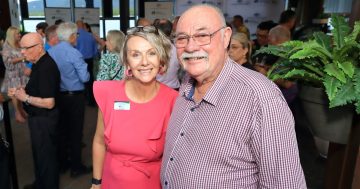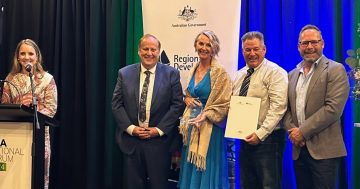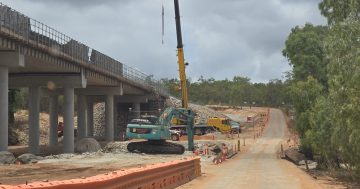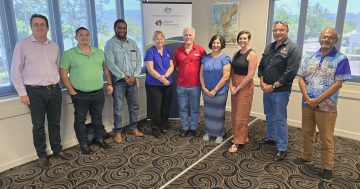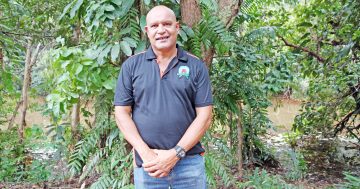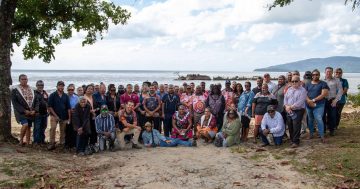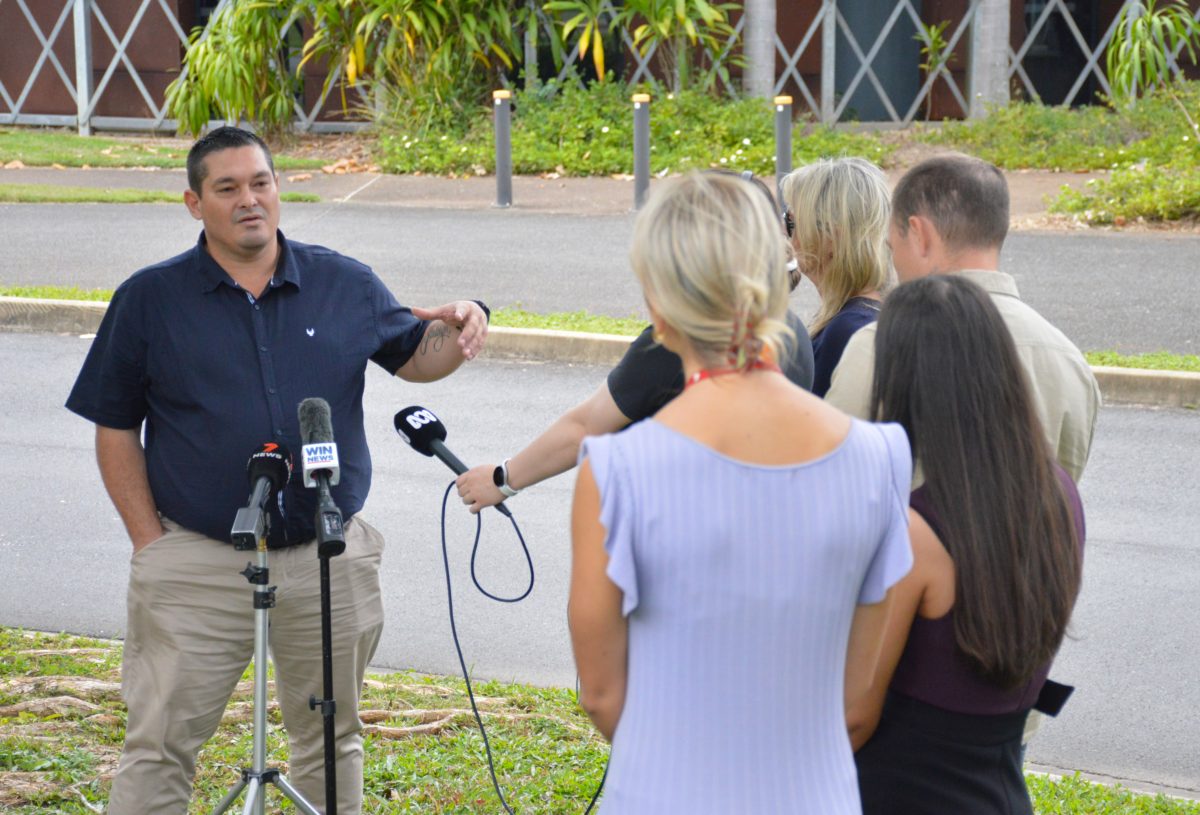
TCICA executive officer Mick Miller tells journalists outside the Tropical North Queensland Housing Summit on 31 July he “can’t see it changing” unless stakeholders unite and abandon the existing fragmented service delivery model. Photo: Lyndon Keane.
The executive officer of the organisation representing all Cape York and Torres Strait councils says the current approach to delivering remote housing should be abandoned for a unified strategy that acknowledges the “multi-tiered issue” and its impact on communities.
Speaking outside the Tropical North Queensland Housing Summit in Cairns on 31 July, Torres and Cape Indigenous Council Alliance (TCICA) boss Mick Miller said the situation was at crisis point, adding he “can’t see it changing” unless major policy change was implemented.
“You’re sitting there [in the summit], listening to all three tiers of government talking about funding and what they’re doing internally, and how they’re looking at trying to fix their processes internally, but that doesn’t help us on the ground,” Mr Miller said.
“There’s still that lack of understanding, I guess, from all tiers of government around what the actual housing needs are; it’s not only about these quick pop-up (modular) homes that we can deliver into communities – it’s around having them culturally and environmentally suitable for the environments that they’re going into.”
The summit was organised by Regional Development Australia (RDA) Tropical North, TCICA and the Far North Queensland Regional Organisation of Councils, and brought together more than 100 stakeholders from government, not-for-profit organisations and the private sector to find solutions for the local housing situation, especially in remote areas like Cape York and the Torres Strait.
While the summit acknowledged the current housing crisis did not discriminate between Indigenous and non-Indigenous communities, with accommodation options almost non-existent in places like Weipa and Cooktown, Mr Miller said reports of overcrowding, with more than a dozen family members living in houses in some remote locations, was of significant concern, as was the actual suitability of the dwellings.
“The government’s trying to address the housing shortage by having these [modular models] implemented, but at the same time, the longevity of these houses and the way they last, and the actual traffic that goes through these homes, you know, they just aren’t suited,” he said.
“If you’ve sometimes got 15 or 20 pumping through a four-bedroom home up there when it’s designed for four people to be living in it, the wear and tear on these properties is making them deteriorate a lot quicker.
“We are finding that a lot of these modular homes that have been installed are actually in need of a lot of maintenance after the first 12 months.
“Modular homes are not permanent homes.”
RDA Tropical North chair Professor Hurriyet Babacan said it was critical stakeholders got housing policy and infrastructure delivery right.
“Housing affects both our economic vibrancy and our workforce, because a house is more than a dwelling,” she said.
“It’s also where you make social capital, where you build community and social cohesion, and where you build resilience.”
Professor Babacan said she believed the current housing delivery model was “fragmented” and agreed with Mr Miller there needed to be a “much more unified, much more co-ordinated” approach if a genuine solution was to be achieved.
“We need to look at specific [local government] needs as well as the pan-regional needs, because our region has some similarities and some differences in housing needs,” she said.
“I think we need to look at where are those similarities and where are those differences, and take a much more co-ordinated approach if it’s going to work.”
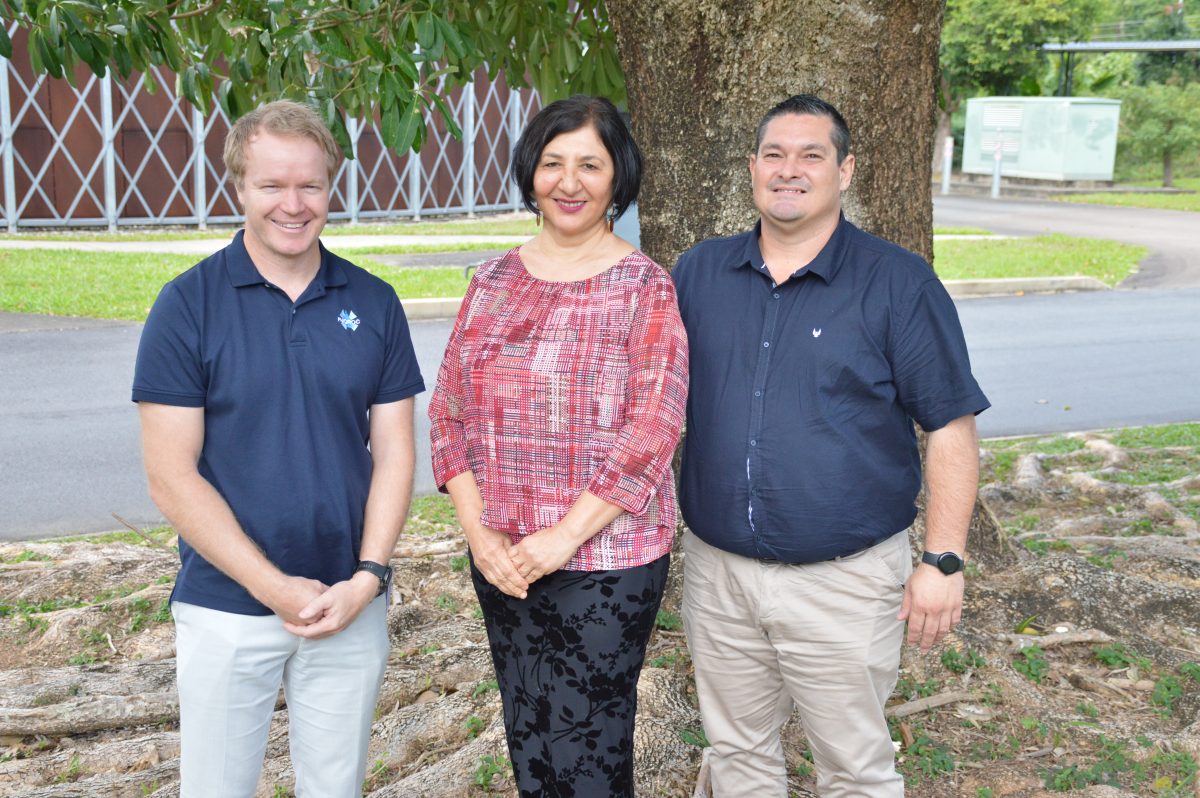
FNQROC executive officer Anthony Archie, RDA Tropical North chair Professor Hurriyet Babacan and TCICA executive officer Mick Miller outside the Tropical North Queensland Housing Summit at the Cairns Institute. Photo: Lyndon Keane.
Original Article published by Lyndon Keane on Cape York Weekly.


